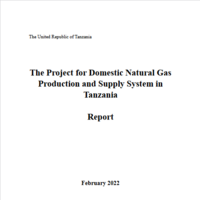Search
Books+
Searching 1,73 books
Search related to the career Petroleum Engineer
Introduction
Petroleum engineers play a crucial role in evaluating the production performance of oil and gas fields. They employ various techniques and methods to monitor and assess the efficiency and productivity of petroleum reservoirs. Here are some key ways in which petroleum engineers evaluate production performance:
Reservoir Surveillance
Petroleum engineers conduct reservoir surveillance to gather data on the behavior and performance of oil and gas reservoirs. They use a combination of well testing, pressure monitoring, and production logging techniques to assess the reservoir's characteristics, such as pressure, fluid flow rates, and production profiles. This information helps them understand the reservoir's performance and identify any potential issues or opportunities for optimization.
Production Data Analysis
Analyzing production data is a fundamental aspect of evaluating production performance. Petroleum engineers collect and analyze data from various sources, including wellhead measurements, flow rates, and fluid properties. They use statistical and analytical tools to identify trends, patterns, and anomalies in the production data. By analyzing this data, engineers can determine the overall production performance, identify production constraints, and optimize production strategies.
Decline Curve Analysis
Decline curve analysis is a widely used method to evaluate the production performance of oil and gas wells over time. Petroleum engineers plot historical production data on a graph and fit decline curves to the data. These curves help estimate the well's future production potential and predict its decline rate. By analyzing decline curves, engineers can assess the effectiveness of production strategies, identify well performance issues, and optimize production rates.
Reservoir Simulation
Reservoir simulation involves creating computer models that simulate the behavior of oil and gas reservoirs. Petroleum engineers input geological and reservoir data into these models to simulate fluid flow, pressure changes, and production rates. By running simulations under different scenarios, engineers can evaluate the impact of various production strategies, reservoir management techniques, and well interventions on production performance. Reservoir simulation helps optimize production and make informed decisions regarding reservoir development and management.
Economic Analysis
Economic analysis is an essential aspect of evaluating production performance. Petroleum engineers assess the economic viability of oil and gas production by considering factors such as production costs, oil and gas prices, and revenue projections. They calculate key economic indicators like net present value (NPV), internal rate of return (IRR), and payback period to determine the profitability and financial performance of oil and gas projects. Economic analysis helps engineers assess the overall production performance in terms of profitability and return on investment.
Conclusion
Petroleum engineers employ a range of techniques and methods to evaluate the production performance of oil and gas fields. Through reservoir surveillance, production data analysis, decline curve analysis, reservoir simulation, and economic analysis, engineers can assess the efficiency, productivity, and profitability of petroleum reservoirs. These evaluations enable engineers to optimize production strategies, identify performance issues, and make informed decisions to maximize the recovery of oil and gas resources.
Source: Various AI tools
Uhandisi
Mining
Searched in English.


























